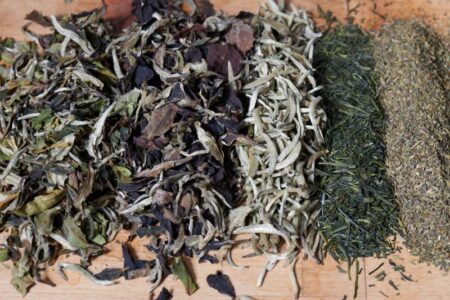European Speciality Tea Association defines specialty tea

Image courtesy of ESTA
The European Speciality Tea Association (ESTA) has created a new definition of speciality tea.
Summarised by the phrase ‘aspiring to excellence in all aspects of tea processing and brewing from the bush to the cup,’ ESTA executive director David Veal said the document is closer to a description. “We acknowledge that it will be difficult if not impossible to achieve a definition universally agreed by all in the specialty tea community, so we have described our approach rather than dictate a definition, in the hope that most people will agree with most of its content. However, we acknowledge, and indeed hope, that this document will encourage an ongoing debate and therefore continue to promote speciality tea into the future.”
Nigel Melican, president of ESTA, added: “We all like to put things tidily into boxes: to define them. But ‘specialty tea’ in its infinite uniqueness likes to defy definition. ESTA has endeavoured to encapsulate the spirit of specialty tea as ‘aspiring to attain excellence…from the bush to the cup.’ For me, this comes very close to defining the indefinable.”
ESTA stated that it “values the science and art of tea making at every level. We value the skill, dedication and care which has been applied to create delicate and unique hand-crafted teas which can be categorised as specialty tea. We support the specialty tea industry in all aspects of tea production from bush to cup and recognise the farmers who are aspiring to attain excellence.”
In creating the definition of specialty tea, ESTA explained that they believe certain factors can help contribute to being able to distinguish specialty teas from commodity teas. These can include but are not limited to: the known supplier, the known farm, the known location, the known production dates, and the known processing method.
According to ESTA, specialty tea can also be defined by the quality of the five criteria below:
- The dry leaf
- The aroma of the dry leaf
- The colour and clarity of the liquor
- The flavour and mouthfeel of the liquor
- The appearance and aroma of the wet leaf
ESTA joins in growing an inspirational community, supporting the movement that promotes specialty tea and improving the quality of tea consumed. “Specialty tea exists through the dedication of people at all levels of the tea value chain. We respect and support the person plucking the leaves, the person producing the tea to the consumer brewing the tea. Each person who touches the tea until it is finally sipped can affect the final cup and our aim is to support this and share knowledge that will improve the tea industry,” offered ESTA in a statement, adding, “ESTA strives to value, support and promote the people who have this dedication and who are involved and passionate in providing perfection in every cup. We value all the above when considering what is specialty tea and we welcome like-minded people and or affiliates to join us in our quest for tea excellence at every level.”
In summary, ESTA said that it supports and promotes specialty tea (Camellia sinensis), the community and the movement. “We also support the botanical sector as an inclusive part of our organisation due to its extensive synergy within the tea industry and with tea lovers and professionals. We are a dynamic organisation, we are aspirational for specialty tea, and we aim to have a positive impact on the wellbeing of all sectors of the tea industry.”



The article might explain the significance of having a standardized definition for specialty tea. This could help consumers identify high-quality tea and differentiate it from mass-produced varieties.